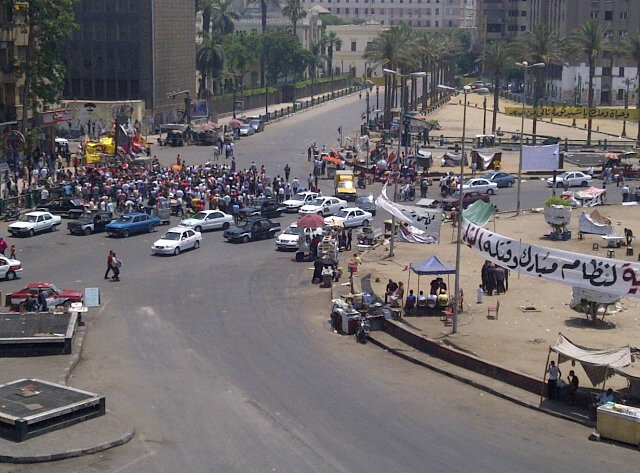Egypt: Mass Protests Fail to Materialise ahead of Presidential Vote

Calls for mass protests ahead of Egypt's presidential election run-off have gone largely unheeded with only a few protesters chanting slogans in Cairos' Tahrir Square.
Egypt's constitutional court dissolved parliament after ruling that one third of parliamentary seats were void due to irregularities in the election process.
The constitutional court also voted against a law that would have disqualified Shafiq, provoking anger among revolutionary groups who view him as a remnant of the Hosni Mubarak regime.
The rulings sparked fears of a "soft coup" and a return to the dark days of the regime. but mass protests have not materialised as expected.
Egypt's interim military rulers said they would convene an assembly to write a new, post-Mubarak constitution for the country.
Mohamed Mursi, for the Muslim Brotherhood, will face Hosni Mubarak's last prime minister, Ahmed Shafiq, who is running as an independent candidate.
The Supreme Council of the Armed Forces, the interim military government, was prepared to hand over power to a civilian government in July.
However, the dissolution of parliament has thrown the planned transition to civilian rule into doubt.
Mohamed el-Beltagy, a senior member of the Muslim Brotherhood's Freedom and Justice Party, said the court's decision was "a complete coup d'etat through which the military council is writing off the most noble stage in the nation's history".
Mohamed El Baradei, the 2005 Nobel Peace Prize winner who waged a failed presidential bid, called for the presidential runoff to be postponed.
"Electing president in the absence of constitution and parliament is electing an 'emperor' with more powers than deposed dictator. A travesty," he tweeted.
The April 6 Movement, which played a crucial role in the 2011 uprising against the Mubarak regime, also described thecourt'smove as a soft coup.
In a Facebook posting, it accused the military of trying to remain in power as long as it can in order to safeguard its own interests.
Amr Moussa, a former foreign minister under Mubarak and Arab League chief, who was also eliminated in the first round, insisted: "It is not a political move."
"It is a legal matter that has been referred to a tribune."
Protesters have criticised the judges on the constitutional court as partisan because they were elected under Mubarak.
© Copyright IBTimes 2025. All rights reserved.





















